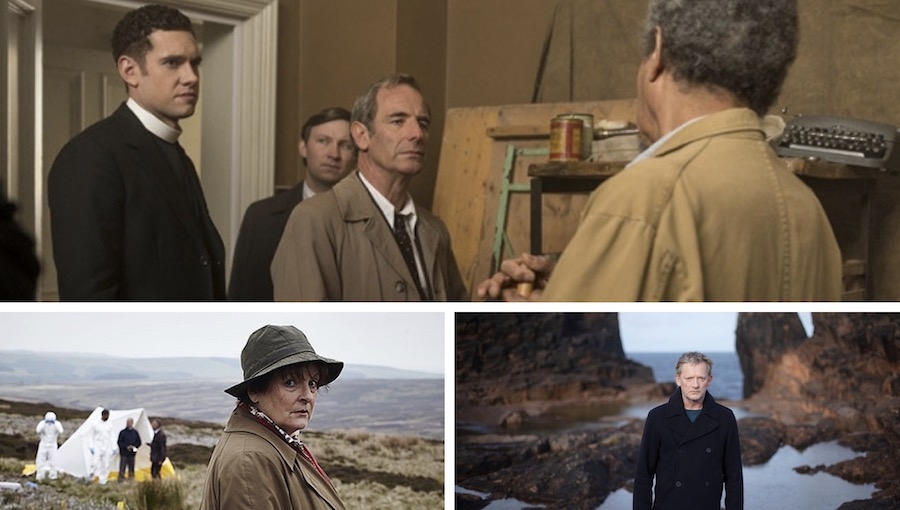With Thanksgiving fast approaching, we often find ourselves becoming more introspective, reflecting on the people and things for which we are thankful. As we at Fanbase Press celebrate fandoms, this year, the Fanbase Press staff and contributors have chosen to honor their favorite fandoms, characters, or other elements of geekdom for which they are thankful, and how those areas of geekiness have shaped their lives and values.
About forty-eight hours after my city went into full pandemic lockdown, I started having worrying symptoms, including fever, chills, aches, and chest congestion. As soon as the thermometer passed the 100 degree mark, I quarantined myself to my bedroom and remained there for the next fourteen days. Everything I touched was sterilized. All contact with my family was conducted with masks and gloves and from a CDC-approved distance.
During the 336 hours of my self-imposed isolation, I suffered through all of the stages of a very bad cold, drank lots of tea, and spent many sleepless hours trying to reassure myself that I did not have COVID-19. (I did not, thankfully.) My primary source of stress-relief during this time was access to streaming services via my laptop. As I perused the titles offered by NetFlix, Hulu, Amazon Prime, and beyond, I found myself gravitating to a very specific segment of the television streaming universe: British crime dramas.
At the peak of my quarantine stress, action movies were too terrifying, romantic comedies too flippant, and historical dramas too poignantly real. My love for apocalyptic dystopia was out of the question. No medical dramas, no natural disasters, no epic war-time sagas. My constant comfort companions, Jane Austen and the sisters Bronte, were suddenly off limits. They all carried the risk of non-stop ugly crying, whether due to sadness or happiness, it did not matter.
I instead found myself in a serene and remote country lane as a camera panned over a newly discovered dead body. A calm and dependable detective arrived, methodically assessed the scene, questioned bystanders, and, over the course of the next hour or so, politely interrogated their way to a solution to the mystery. Against all odds, this was watchable, and so I continued on, watching through all of the early months of quarantine.
I started with Grantchester, then quickly moved on to Shetland and Vera, Foyle’s War and The Bletchley Circle, Miss Marple and Hercule Poirot…every crime-packed drama PBS, BritBox, and AcornTV had to offer. I gobbled up whole series, new and old, historic and modern. Initially, I couldn’t have told you why these dramas were so palatable. They were just as grim and suspenseful as any other crime drama, and sometimes more so. They were filled with gruesome visuals and sad, grieving people. Evil was on full display, and there were very few happy endings beyond simply catching the guilty party.
But I did find these stories to be palatable, and even more than that, I found them to be comforting. What was it about a murder mystery set on the lonely moors of Northumberland or a wind-swept Scottish isle that give my stress-addled psyche what it needed? There is, of course, no one answer. It has something to do with the foreignness of the legal system, the fact that very few guns are involved, and the general sense of a grand history. It also has something to do with beautiful landscapes, imposing architecture, and comforting traditions. I find the most important aspects, though, to be a dependable plot construction and an extreme deference given to polite behavior.
Let’s start with plot. It is notable that the most common search-engine descriptors you will find associated with these shows are “Slow Moving” and “Cerebral.” These aren’t plots that drive forward at break-neck speeds towards a sudden, shocking climax. No, they take their time to get where they are going. The journey through the evidence is painstaking and methodical. Every person of interest is questioned (usually more than once), and every conversation is thorough. The correct procedure for investigation is vitally important and carefully adhered to.
Throughout the investigation, all of the niceties are observed. Interrogations are conducted, whenever possible, with a hot cup of tea and numerous apologies for even the most benign intrusions. The most volatile and ambitious of detectives exercise a level of control that seems other-worldly. They might be talking to the most heinous criminal they have ever encountered, but they do so with a “please” and a “thank you, luv,” if not with a smile.
All of this is in service to a calm and composed response to horror. Catastrophe is resolved with reason and logic. There is no jumping from point A to Zed; there are no shortcuts or bending of the rules. The solution will come at the end of a long and methodical journey through all of the evidence. The mystery will only be unraveled through careful thought.
It is this adherence to procedure and reliance on logic that continues to be so comforting throughout 2020. As we have gone from one chaos in the real world to the next, I have come to depend on my chosen venue of escapism to politely deliver solutions to even the most inscrutable mysteries. Until the day I can once again visit a desolated apocalyptic wasteland, I will be thankful for the calm reliability of the British crime drama.

